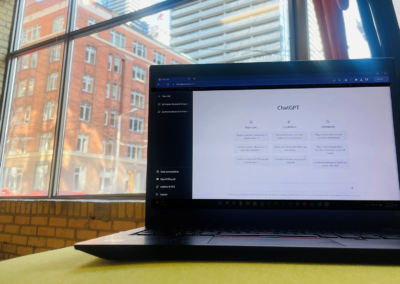For Consumers In 2021 A Frictionless Commerce Experience Is Essential
ARTICLE
BY Sara Plavsic
The most precious, non-renewable commodity consumers possess today is their time. The contemporary consumer sees new technologies as empowering, disintermediating, gratifying and, in most cases, an opportunity to fairly exchange personal data for a better experience that helps them make the most of the limited time they have. Exponentially propelled by the COVID-19 pandemic, a frictionless commerce experience that was once novel, even nice-to-have, in the eyes of the consumer is now deemed essential as their channel-agnostic commerce interactions with brands and services become more ubiquitous.
Stemming from consumers’ ever-evolving needs and expectations of brands in the digital era, frictionless commerce is a consumer state – through the affordances of connectivity – that aims to delight in the most efficient and meaningful ways possible. Consumers expect a frictionless commerce experience to be provided by brands or services through various stages in their customer journey: by anticipating their needs, facilitating the discovery process, providing rationale or support for considering purchase, and positive affirmation while using the product or service – that, in turn, leaves a lasting effect on building brand loyalty.
Businesses need an actionable framework for understanding customer expectations so they can deploy the best strategy to retain customers and drive engagement.
CUSTOMER JOURNEY & SERVICE BLUEPRINT FRAMEWORK FOUNDATION
NEED: Reasons and motivations for additional awareness around a need or service to fulfill a need.
DISCOVERY: User’s discovery of service, and their first impressions of the product and experience.
CONSIDERATION: User’s rationale and thought process for participating in the service experience.
ACTION: User’s experience of using the service, and what they think about the process experience.
EFFECT: Effect of service experience on the user, after they’ve achieved their objectives.
To remain competitive, brands need to adapt to consumers’ emerging needs and evolving expectations with respect to how and where they intend to discover, shop and engage with the products and services they buy. Businesses need an actionable framework for understanding customer expectations so they can deploy the best strategy to retain customers and drive engagement.
Environics Research and Pivotree’s Frictionless Index is a toolkit that provides business decision-makers with a lens for understanding why and how consumers engage with e-commerce and, ultimately, the drivers of brand loyalty. The Frictionless Index can provide brands with a window into consumers’ orientations toward technology and the digital age that serve as indicators behind why and how they engage with e-commerce, and what a frictionless commerce experience must look like in order to drive brand loyalty.
To start, brands must develop an understanding of the relationship between the dimensions of frictionless commerce and their associated barriers; this requires a tailored assessment of your customers and their expectations, and your organization’s readiness to adapt to their needs. Consumers indicate that, in order to build loyalty and affinity, brands must deliver on the following six dimensions of frictionless commerce: Fulfillment and Multi-Channel Alignment; Security and Payment Options; Ease of Access, Design and Navigation; Personalization; Positive Friction; and Customer Service. Furthermore, optimizing how your brand delivers a user experience to its consumers in any of these six dimensions can help address three key barriers to success at the core of an organization’s offering: data management, technical debt and culture impact.
The Environics Research approach for understanding customer experiences is centred in our Social Values framework, which measures individual attitudes and motivations that inform customer expectations and decision-making. This foundational understanding is integral to developing a customer experience journey or service blueprint that is responsive to the unique touchpoints, emotions and need states that your customers experience. Our research informs the development of actionable, frictionless commerce frameworks that include journey phases; experience trajectories; service lines of interaction; and customer feelings, thoughts and engagement levels by outlining key touchpoints that influence a consumer’s experience when interacting with a brand through the lens of the six dimensions of frictionless commerce.
You can read more frictionless commerce insights in our recent report, 2021 Delivering Frictionless Commerce: A guide to understanding customer expectations and growing brand loyalty. Insights included in this report were synthesized from over 3,800 interviews with North American consumers, conducted between August and October 202. Topics covered include:
- Consumer satisfaction across a range of sectors, including clothing and apparel, personal care, sporting goods, home furnishings and electronics, food and beverage, and more.
- Industry-specific analysis of the drivers of brand loyalty by category.
- Custom questions provided to subscribers.
Find out how Environics can help your organization
Related insights



Toronto
366 Adelaide Street West
Suite 101, Toronto, ON
Canada M5V 1R9
416 920 9010
Ottawa
135 Laurier Ave W.
Ottawa, ON
Canada K1P 5J2
613 230 5089
Calgary
421 7th Ave SW
Suite 3000, Calgary, AB
Canada T2P 4K9
403 613 5735
